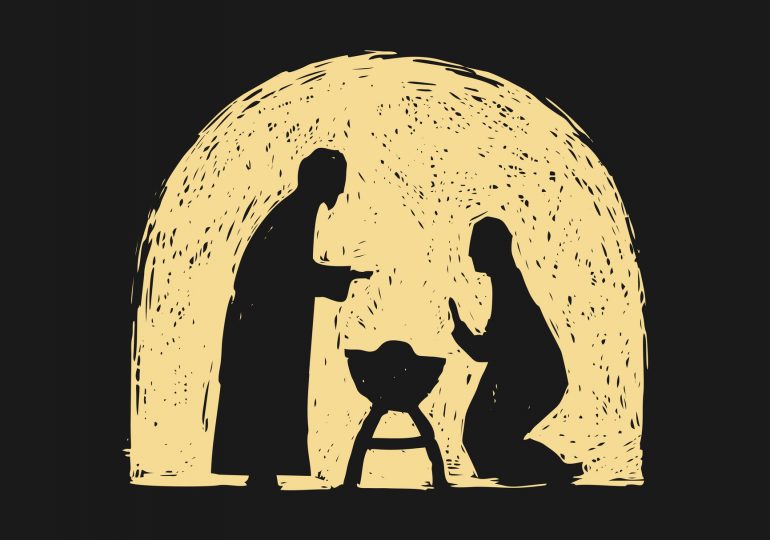Like a shoddy police procedural with an easily-recognizable bad guy—the unshaven one with the heavy accent—the Christmas story has one villain in particular. Not Joseph, who didn’t believe Mary’s tale until an angel came to him in a dream. Not the innkeeper who said there was “no room” for Joseph and Mary. (That’s probably a misunderstanding anyway.) No. The real baddie, looming up behind the whole narrative, is King Herod.
[time-brightcove not-tgx=”true”]
Modern scholars know quite a lot about Herod the Great, mostly because of the Judaean historian Flavius Josephus, who had access to court records. The Roman Emperor Augustus had given Herod the title “King of the Judaeans,” even though he wasn’t fully Jewish. The Romans liked to give the appearance of civilized rule by getting local thugs to do their dirty work. Herod was simply the most successful warlord in the region.
To begin with, Rome allowed him to rule the area around Jerusalem, plus the northern region of Galilee. They steadily added more adjacent territory. Several important cities remained independent, but it would be fair to say that for over 30 years Herod ruthlessly implemented a policy roughly akin to “Make Judaea Great Again.”
In a way, he succeeded. He had the Jerusalem Temple rebuilt, making it more splendid than ever before. This was part of his effort to legitimize himself and his descendants as the true “Kings of the Judaeans,” since ancient prophecies had spoken of the King as the Temple-builder, getting Jerusalem ready for Israel’s God to return in glory. Further afield, he worked hard on behalf of Judaean communities around the Mediterranean world. Through his several wives, he established a dynasty that lasted for half a century, albeit in uneasy tension with Roman rule.
He was a great builder. Pilgrims to the Holy Land today are often surprised to see one remarkable edifice after another for which Herod was responsible. He developed the port of Caesarea Maritima with innovative technology. By making it the principal access point on the Mediterranean, he was able to levy tariffs on goods coming and going, and bring economic growth to the region.
His rule, however, was brutal, and he was hated and feared. When he was dying, he gave orders for leading local men to be killed so that there would be plenty of mourning going on, and not just celebration. (The order, happily, was rescinded after his death.)
Read More: How the Christmas Stories Call the Church to a Different Vision
The story in Matthew’s gospel, that the rumor of a new-born king produced a violent reaction, feels typical of Herod: just in case it was true, he decided to kill all the baby boys in town. That was how he’d always held on to power. Why change now?
The reason Matthew tells that story isn’t simply for the sake of a dark backdrop. As his gospel continues, it becomes clear that he is outlining a sharp contrast of kingdom-styles. Jesus’ kingdom-manifesto (more commonly known as “The Sermon on the Mount“) insists that the true God is putting all things right through the meek, the mourners, the hungry-for-justice people, the peacemakers. When even Jesus’ own prophetically-inspired cousin, John the Baptist, expresses doubts as to whether He really is the right one, Jesus responds by pointing not to territory conquered, or buildings erected, but to lame people now walking, blind people now seeing, and so on.
A different kind of kingdom. A different kind of king. And when two of Jesus’ own closest aides ask him for the top jobs in his about-to-be-launched cabinet, he says, with withering scorn, that that’s how the rest of the world may do things, but we’re going to do it the other way. The first will be last and the last first. Greatness is about learning to serve. Jesus’ own pathway to power was to suffer a brutal death on a Roman cross.
In all this, Jesus was retrieving and modeling some of the remarkable kingship themes from Israel’s own scriptures. One of the old Temple songs (also known as Psalm 72) speaks of the coming king giving justice to the poor, defending the needy, having pity on the weak, and rescuing people from oppression and violence. Other songs and prophecies speak of looking after widows and orphans, and welcoming strangers and outsiders. That, they say, was how the divine glory would fill the world. For some reason those lessons seem not to have got through to Herod the Great. But they were what Jesus was all about—right from the start, as His family became refugees, seeking asylum in Egypt to escape Herod’s men.
At this time of year, many children take part in Christmas pageants. It’s easy to get wrapped up in the story of Mary and Joseph, of shepherds coming in from the fields with stories of angels, and of strange wise men from the East following a star. Skeptics and scoffers will say, as they always do, that perhaps Matthew just made it all up. Nervous worshipers will respond that, no, there were indeed serious star-gazers who might well have put two and two together and come looking for a new king.
But all this misses the point—the point which Matthew’s first readers would have heard loud and clear. There are two ways of projecting power: there is Herod’s way, and there is Jesus’ way. Those who celebrate Christmas in a world of power plays and power struggles near and far should read Matthew’s story of Jesus, all the way from the early scene with angry old Herod, to the final scene where Jesus declares that all authority in heaven and on earth, in its radically reshaped form, has now been given to him.
The modern church has been quite happy to think of Jesus having all authority in heaven. We have hardly begun to figure out what it might mean for Jesus—the Jesus of the incognito birth in Bethlehem, of the Sermon on the Mount—to have all authority on earth.
Leave a comment








